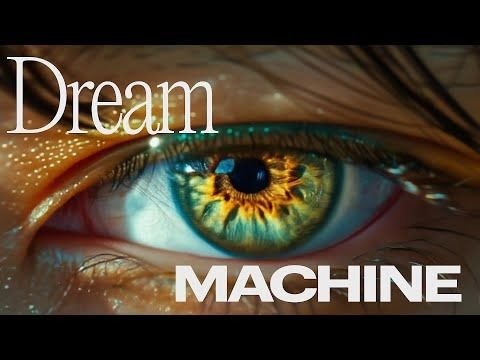
Edit Post
Advancements in Dream Machine technology can potentially revolutionize our understanding of consciousness and the human mind. These devices could provide unprecedented insights by monitoring and decoding brain activity during sleep and dreaming. This technology might help answer fundamental questions about the nature of consciousness and the mind-brain relationship. Additionally, Dream Machines co... View more
Advancements in Dream Machine technology can potentially revolutionize our understanding of consciousness and the human mind. These devices could provide unprecedented insights by monitoring and decoding brain activity during sleep and dreaming. This technology might help answer fundamental questions about the nature of consciousness and the mind-brain relationship. Additionally, Dream Machines could enhance cognitive functions like memory consolidation, problem-solving, and creativity, leading to breakthroughs in education and therapies for cognitive impairments and mental health conditions. The development and use of Dream Machines come with significant ethical considerations. Ensuring user privacy and consent is paramount, as the data collected is highly personal. Preventing misuse and manipulation of dreams is crucial, requiring clear boundaries and ethical guidelines. Long-term psychological impacts must be studied to mitigate any potential negative effects. Accessibility and equity are also important, ensuring that the benefits of this technology are available to all, regardless of socioeconomic status. View less
- 0 0
- 0 0
-

-
Ajith L Rajan
published solution: 1 year beforeAdvancements in Dream Machine technology by 2038 are poised to significantly enhance our understanding of consciousness and the human mind. Here’s a concise solution addressing both the impacts and ethical considerations: Impacts on Understanding of Consciousness Enhanced Brain Mapping: Dream Machines will provide detailed insights into the neural pathways involved in dreaming, aiding in the mapping of consciousness and cognitive processes. Lucid Dreaming: Facilitating controlled lucid dreaming can offer a deeper exploration of subconscious thoughts, emotional processing, and problem-solving mechanisms. Mental Health: Understanding dream patterns can lead to better diagnosis and treatment of mental health conditions like PTSD, anxiety, and depression. Creativity and Learning: Studying dreams can reveal how the brain processes creativity and learning, potentially enhancing educational and creative practices. Consciousness Studies: These machines can help bridge the gap between waking consciousness and the dream state, providing new perspectives on what it means to be conscious. Ethical Considerations Privacy and Consent: Ensuring users' privacy and obtaining explicit consent before accessing or manipulating their dreams is paramount. Data Security: Protecting the sensitive data obtained from Dream Machines against misuse or unauthorized access. Psychological Risks: Monitoring and mitigating potential psychological risks associated with deep exploration of the subconscious mind, such as trauma or distress. Equitable Access: Ensuring equitable access to Dream Machine technology to prevent socioeconomic disparities in mental health and cognitive enhancement. Regulation and Oversight: Developing robust regulatory frameworks to oversee the ethical use, research, and commercialization of Dream Machines. Informed Use: Providing comprehensive education and guidelines for users and practitioners to ensure responsible and informed use of the technology. Autonomy: Respecting individuals' autonomy and agency over their own dreams and mental states, avoiding manipulation or coercion. Conclusion To harness the potential of Dream Machine technology while safeguarding ethical standards, a balanced approach is crucial. By prioritizing privacy, consent, and equitable access, and implementing strict regulatory frameworks, we can responsibly advance our understanding of consciousness and the human mind. This will ensure that the benefits of such profound technology are realized without compromising individual rights and well-being.
0 1 0 0 1 0


